“Both Bush and McCain chose womanizing, alcohol, rules breaking along with poor academic performance as passive aggressive resistance against domineering fathers.”

I'm puzzled why McCain always has something worse than the stench of loser about him? I mean let us look. He let his poor judgment skills allow him to be a real fuck up of a Navy Pilot.
 Showing the complete lack of judgment he'd become famous for, he was shot down disobeying orders (because the better pilots were able to do it and get home) overflying his target; Then, he get broken under torture only getting medical help by endangering other troops. Then he invents a phony "Christmas" Cross in the sand tale to hide all his failings save heping morale in the Hanoi Hilton. Then he dumps his first wife and gets a rich heiress turning to the last refuge of the complete tool - Politics. Then he gets involved in the Keating Five Scandal which was the canary in the coalmine for the Banking Crisis. He then became Mister Deregulation.
Showing the complete lack of judgment he'd become famous for, he was shot down disobeying orders (because the better pilots were able to do it and get home) overflying his target; Then, he get broken under torture only getting medical help by endangering other troops. Then he invents a phony "Christmas" Cross in the sand tale to hide all his failings save heping morale in the Hanoi Hilton. Then he dumps his first wife and gets a rich heiress turning to the last refuge of the complete tool - Politics. Then he gets involved in the Keating Five Scandal which was the canary in the coalmine for the Banking Crisis. He then became Mister Deregulation. Fucking over all of us again and again. For some reason (most likely deep biting shame), McCain as Senator won't let other POWs or those who are seeking MIAs get records. He also votes against Veterans. We have no idea what the fuck his problem is there. But it doesn't get better. He let Bush fuck him up in 2000. And he remains marginalized. It remains to be seen how far the GOP will go revealing their old dirty tricks of 2000, 2002 and 2004 for this loathsome loser. He ogles and worse women other than his wife while gambling at craps. His rich wife then bails him out from debt. He has no financial sensibility. Witness the state of his campaign before he was declared the GOP patsy. My gut is that they want him as loser to try and position a new puppet. You know for 2012. Someone like “Pebbles” Palin. We will see if she can avoid blowing her chance to be heir apparent to Nixon/Reagan/Bush.
Fucking over all of us again and again. For some reason (most likely deep biting shame), McCain as Senator won't let other POWs or those who are seeking MIAs get records. He also votes against Veterans. We have no idea what the fuck his problem is there. But it doesn't get better. He let Bush fuck him up in 2000. And he remains marginalized. It remains to be seen how far the GOP will go revealing their old dirty tricks of 2000, 2002 and 2004 for this loathsome loser. He ogles and worse women other than his wife while gambling at craps. His rich wife then bails him out from debt. He has no financial sensibility. Witness the state of his campaign before he was declared the GOP patsy. My gut is that they want him as loser to try and position a new puppet. You know for 2012. Someone like “Pebbles” Palin. We will see if she can avoid blowing her chance to be heir apparent to Nixon/Reagan/Bush.
Robert F. Kennedy Jr. and Greg Palast: Drinking the ACORN Kool-Aid: How Cries of Voter Fraud Cover Up GOP Elections Theft
Virtually the entire mainstream electronic media drank ACORN Kool-Aid this month brewed up by the Republican National Committee. Almost no one seriously challenged John McCain's comical assertions that ACORN, a grassroots voter registration group, "is now on the verge of maybe perpetrating one of the greatest frauds in voter history in this country, maybe destroying the fabric of democracy."
While the Republicans had the distracted media searching for links between Obama and ACORN, RNC operatives were busily completing one of the most massive voter suppression and purging efforts in American history, stealing hundreds of thousands of Democratic votes across the embattled swing states and striving to arrange chaos and endless lines at the voting booths next week.
First the facts about ACORN. Months ago, we obtained, as part of our investigation for Rolling Stone magazine, the Republican's list the GOP alleged were the very worst cases of vote and registration fraud by ACORN and similar groups. We went through the names the GOP asserted were "obviously, undeniably and clearly fraudulent" voter registrations.
First, there was Melissa Tais, a dubious ACORN registrant. Her two voter registration forms show, admittedly, suspiciously different signatures. Republicans suggested Melissa was part of a massive fraud to allow Democrats to vote twice.
They were wrong. Ms. Tais, a Cerrillos, New Mexico, waitress, told us she had signed one form on a table and one form holding the paper in her hand. Hence, a second, wobbly signature.
Then there was Patricia White, who Republicans claimed was a fictitious voter. When we filmed her at home in Albuquerque, she seemed real enough.
And so on, through the entire GOP list -- not one fraud. And these were their best cases out of the five million "illegal voters" who Republican leaders claim have infiltrated America's voting rolls.
The overblown histrionics about ACORN do not surprise those of us who have been watching the RNC's election manipulation antics. For eight years White House operatives have been trying to gin up press stories about voter fraud. David Iglesias of New Mexico was one of seven U.S. Attorneys fired by the White House for their refusal to bring voter fraud prosecutions. "We took over 100 complaints," from the GOP, he told us, "We investigated for almost 2 years, I didn't find one prosecutable voter fraud case in the entire state of New Mexico."
Iglesias, a McCain supporter, has, for the first time, leveled a new and serious charge: Despite finding none of the 200 voters guilty, he says the White House nevertheless ordered him to illegally prosecute baseless cases against innocent citizens, just to gin up voter fraud publicity. His refusal, he says, cost him his job. "They were looking for politicized -- for improperly politicized US attorneys to file bogus voter fraud cases."
Certainly ACORN collected some bad signatures. But despite McCain's claims, now morphed into media theology, none of ACORN's actions will have any impact on any election. ACORN hired 13,000 canvassers to register new voters. A small number of these workers defrauded ACORN by handing in phony registration forms using names they had invented (e.g. Mickey Mouse), or copied from phone books. In one case ACORN canvassers used cigarettes to bribe a homeless man, now a Fox News regular, to register 17 times. None of these activities constituted voter fraud. It is no crime to register 17 times; only the final registration counts. His multiple registrations would not allow the tobacco lover to vote 17 times. Nor is there any evidence the phone book registrants will cast multiple ballots.
Finally, the removal by GOP officials of hundreds of thousands of legitimate voters from voting rolls over the past year provides ACORN with a sound rationale for obtaining new registrations, even from voters who believe they are already registered.
ACORN took pains to screen its registrations and cull out those it considered dubious. However, federal laws make it a felony for voter registration groups like ACORN to discard registrations even when it believes them fraudulent. So ACORN flagged the forms it considered doubtful and handed them in to the registry. Ironically, it was those flagged forms -- the fruits of ACORN's diligence -- that have been flogged by Republicans as their best evidence of widespread election fraud.
Voter fraud is a phantom according to Lorraine Minnite, an expert on voting crime at Columbia University. Only 24 cases of federal voter fraud have been uncovered between 2002 and 2005 despite massive government efforts devoted to uncovering evidence of a voter fraud crime wave.
The GOP is ginning up hysteria about non-existent vote fraud by Democrats in order to distract the press from its own campaign to disenfranchise millions of American voters.
The Republicans have created an obstacle course of barriers designed to suppress the vote, purge tens of thousands of Democratic voters from voting rolls, create mayhem and delay at voting venues on Election Day, and stop millions of votes from being counted this election cycle.
Jailed GOP activist Jack Abramoff and his fellow convict, Congressman Bob Ney, wrote the most sinister provisions of the Help America Vote Act (HAVA) which Congress passed in 2002 creating a series of diabolically cunning new voting impediments. HAVA, for example, allows state voting officials to purge tens of thousands of voters from the polls using algorithms and voter ID requirements that disproportionately disenfranchise black, Hispanic and minority voters, and other Democratic demographics including senior citizens and young people.
In 2004, highly organized GOP tacticians helped disenfranchise no less than 2.7 million American voters. Almost a million of them were African Americans. The The Federal Elections Commission has found black voters were nine times more likely to have their votes discarded than white voters and that over one-third of the million provisional ballots cast in 2004 -- ballots handed disproportionately to African Americans -- were never counted but simply thrown into dumpsters.
In a technique known as "caging" RNC operatives send millions of first class letters to black voters across the country marked 'do not forward.' Republican operatives armed with lists then invade black precincts on Election Day to challenge those voters whose letters were returned to the RNC because the voter was not home when the mail arrived. That tactic deliberately targeted black students on vacation in August, homeless men and soldiers posted overseas. "Caging" is resurrecting Old Dixie's Jim Crow procedures designed to rid the lists of black voters and create long lines in black precincts.
In this election, new HAVA mandates permit voting officials to precisely match registration form information with the voter's driver's license and other government records. While it may sound reasonable, in practice, any change, even a dropped hyphen, is cause for eliminating the voter from the rolls. Since 2004, Colorado's Republican Secretaries of State have purged one out of every five voters from the rolls. The current Secretary of State, Mike Coffman, a Republican also running for office, recently purged an additional 37,000 voters and discarded 6,400 new voter registrations -- overwhelmingly Democratic -- based upon an obscure technical mistake that Coffman's office encouraged voters to make in the first place.
The GOP "anti-fraud" campaign resulted in one in nine New Mexico Democratic voters finding their names had disappeared from voter roles during this year's caucus.
Despite a recent Supreme Court decision upholding Ohio's refusal to disenfranchise 200,000 legitimate voters based on this absurd demand to "match" voter names to databases, White House operatives are still fighting to purge these names from the rolls. President George Bush last week personally asked his Attorney General Mike Mukasey to renew Republican efforts to disenfranchise these voters.
Contrary to Mr. McCain's assertions, the real threat to democracy is from the GOP itself. ACORN has served as a good distraction from Republican efforts to steal the vote from hundreds of thousands of legitimate voters, a genuine threat that has received almost no media attention.
They're stealing your vote, but you can steal it back. Here are some steps you should take to protect your vote. First, avoid the November 4th minefield. Voters, wherever possible, should vote early and in person. Where feasible, avoid mailing in your ballot, many are rejected for flimsy reasons, and first time voters in many states must include a photocopy of ID. However, if you have a mail-in ballot, don't throw it away. Follow directions, use the correct postage (that's an error that cost a hundred thousand votes last time) and, if possible, walk it in to your elections office.
At the polling station, should you find yourself one of the 2.7 million purged, or your ID rejected, then do your best to resist a "provisional" ballot--one third of which are not counted. Return with proper ID, or call 1-866-OUR VOTE for legal assistance. And never just walk away discouraged. That's just what they want you to do.
Robert F. Kennedy Jr. and Greg Palast are authors of an investigation of vote suppression in the current Rolling Stone, and a comic book voter guide, "Steal Back Your Vote," both available for download at StealBackYourVote.org.
News Orgs Investigate Possibly Fatal McCain '64 Car Crash
For the past two months, a major American magazine and an allied news service have been engaged in a legal battle with the United States Navy over records that they believe show that John McCain once was involved in an automobile accident that injured or, perhaps, killed another individual.
Vanity Fair magazine and the National Security News Service claim to have knowledge "developed from first-hand sources" of a car crash that involved then-Lt. McCain at the main gate of a Virginia naval base in 1964, according to legal filings. The incident has been largely, if not entirely, kept from the public. And in documents suing the Navy to release pertinent information, lawyers for the NS News Service allege that a cover-up may be at play.
"Plaintiffs have also obtained documents showing that law enforcement officers were ordered back to the accident scene to retrieve personal physical effects. The Navy has never publicly acknowledged this information," one document reads. "This request involves federal government activity, as it addresses what may be an attempt by the Navy to protect by concealment the involvement of a former Navy officer, sitting Senator and Presidential candidate in a serious incident involving the injury or death of another human being."
The first request for information concerning duty assignment logs to Portsmouth Naval Hospital -- where McCain was allegedly brought after the accident -- came in the form of a Freedom of Information Act request on August 28, 2008. The Navy acknowledged receipt of the request and advised that it had located the relevant information a few weeks later, only to deny the FOIA on grounds that it didn't prove an "imminent threat to the life or physical safety of an individual" or satisfy the criteria of "a breaking news story of general public interest."
"The patient admission record logs that you seek are exempt from release," wrote G.E. Lattin, Deputy Assistant Judge Advocate General, "as information in personnel and medical files, as well as similar personal information in other files, that if disclosed to a requestor, other than the actual person in which the information is pertaining to or next of kin, would constitute a clearly unwarranted invasion of personal privacy."
NS News Service and Vanity Fair appealed the decision and asked for expedited treatment of the case, as the end of the presidential election loomed. But the Navy denied that request as well.
"It appears to be a deliberate refusal to provide clearly releasable information concerning assignments to Portsmouth Naval Hospital," wrote legal representatives for the two news organizations. "Allowing the Navy to extend its time to respond beyond a date when the documentary facts of this matter would be available for public consideration prior to the national election on Tuesday, November 4, 2008 would violate the spirit, as well as the provisions of the FOIA."
Staff for National Security News Service and the company's lawyer both refused to discuss the proceedings. And there are only parcels of information concerning the story that can be gleamed from the court documents.
At a minimum it seems clear that Vanity Fair and NS News Service have launched an investigation "disclosing first-hand witnesses' recollection of an automobile accident in which then Lt. John S. McCain III was involved. Those witnesses specifically recall McCain's assignment to that [hospital] facility with the other person involved in the accident." This episode in McCain's life has, it seems, not been made public, and the plaintiffs suggest that the Navy may be attempting to actively restrict information about the incident.
"The subject matter of the documents is a matter of current exigency to the American public," reads a document filed by legal representatives for the news service, "because the requester is preparing a current news report addressing whether the Navy continues to conceal the involvement of a Navy officer in a serious automobile accident in July 1964."
McCain was frank, garrulous and accessible -- and then he wasn't

It happened on a warm July afternoon as McCain traveled from a West Virginia airport to a rally in Ohio.
I had headed to the back of his bus with a small group of reporters, where as always McCain warmly motioned for us to squeeze in beside him on the couch.
The questions meandered across more than a dozen topics, but I asked if he agreed with his advisor Carly Fiorina's recent statement that it was unfair for some health insurance companies to cover Viagra but not birth control -- because McCain generally opposed those kinds of mandates.
Liberals and late-night comedians would later revel in McCain's on-camera discomfort -- the widening of his eyes, the awkward silence while he clutched his jaw and formulated an answer. But I had come to respect McCain's frankness and his willingness to admit he didn't always have an answer. Watching the question morph into an embarrassing "gotcha moment" for cable television, my stomach churned and my cheeks grew hot.
By July, I had covered McCain for almost seven months. I could recite many lines of his stump speech by heart, dreamed about his events at night and spent so much time scrolling through campaign e-mails on my BlackBerry that my fiance joked to our friends about the other man in my life.
Over those months, McCain had artfully created a sense of intimacy with the reporters who traveled with him. He barbecued for us at his Arizona cabin, and opened up about matters as personal as his faith and his son's girlfriends. On one of my first days covering McCain, another reporter protectively warned me that it was important to be judicious with the material I used from McCain's bus rides to keep the conversations in context.
Although the relationship was mutually beneficial, McCain offered accessibility and openness that was rare, if not unprecedented, in modern presidential politics. Now, as the presidential campaign plunges into its final days, that intimacy -- real or imagined -- has evaporated.
I joined McCain during the icy December days in New Hampshire when his confidence about a comeback seemed almost delusional. Inside the steamy windows of his campaign bus, the Straight Talk Express, McCain held court on a gray horseshoe-shaped couch at the rear, where we listened with rapt attention.
Back then, his staff often didn't bother to listen to his rap sessions, which became an education for reporters on his world view. Early on, we learned to detect his disdain for some of his opponents -- Mitt Romney and Barack Obama -- by the way he lavished praise on others -- Rudy Giuliani, Mike Huckabee or Hillary Rodham Clinton -- in the same sentence.
He leavened policy discussions with funny stories from his school days when some knew him as "McNasty" or reliving his daredevil exploits as a young naval aviator. He was unguarded and charming, occasionally solicitous about our lives.
One winter afternoon when Cindy McCain joined him and he was stuck with three newly engaged reporters, he gave us a 10-minute treatise on honeymoon spots.
At the top of his list was Costa Rica, where he had done a zip-line canopy tour. Second was Montenegro and Dubrovnik, which he called "one of the really stunningly beautiful places in the world." Third was Fiji: "The people are extremely friendly; they used to be cannibals, but the British cured them of that bad habit," he joked. "We've gone to Fiji with our kids lots of times."
In an aside about the Galapagos Islands, he veered into his last encounter there with sea lions: "I'm not making this up -- I was swimming, and there was this group of female sea lions, and this one male sea lion, and the next thing I know this guy's face is right where my hand is. . . . So I swam away and he bit my flipper. I swear to God. . . . He thought I was some kind of competition."
"Where did you guys go on your honeymoon," I asked.
"Uhh," McCain said. "Hawaii," Cindy interjected.
"Canada?" McCain joked, pretending to fumble. "I get my marriages mixed up."
Cindy good-naturedly rolled her eyes. "We had a great time," he said, grinning, before telling us about their honeymoon spot.
For several months, he would often lean in and ask the same question: "Did you set a date yet?"
McCain's energy and sense of fun were most on display when he was surrounded by the regular characters in his entourage.
Before the primaries, there was Tim Pawlenty, the Republican governor of Minnesota, who was so unassuming that McCain's bus driver once asked me what he did. Sen. Lindsey Graham (R-S.C.) loosened McCain up before debates or big events by subjecting himself to McCain's unmerciful teasing. McCain loved to tell the story of Graham's Ambien overdose on an international flight and how he had to be elbowed awake during a subsequent meeting with a head of state.
For the first half of the year, strategist Steve Schmidt and McCain speechwriter Mark Salter were regular fixtures in the press cabin. They offered honest observations about the direction of the campaign off the record, and lots of spin on the record.
We would persuade them to tell their own stories at the bar in the evenings. Salter had colorful tales of his days as a railroad worker in Davenport, Iowa, when he had hair past his shoulders and worked for a foreman known as "one-armed Ronnie."
Schmidt could do dead-on impressions of his former boss, Vice President Dick Cheney, and had fascinating stories about managing the confirmation process of Justice Samuel A. Alito Jr. -- always off the record.
They would complain about campaign coverage one moment and have drinks with reporters hours later. During a stop in Selma, Ala., I fell while out running and ended up with bleeding palms and scraped knees but no Band-Aids. Schmidt and Salter showed up at the hotel's dining room with gauze and antiseptic.
At the time of that July bus ride with McCain, there was broad disagreement among his staff about whether the endless hours of questions were helping his quest for the White House.
In the driveway of the airport motel on the evening of the Viagra question, McCain's aides made an argument that would shape their attitude over the next four months: If reporters were going to ask about issues that they deemed irrelevant to voters, why should the campaign give them access to the candidate at all?
Salter told me I had made the case for those who thought McCain should curtail his exposure to the press.
McCain aide Brooke Buchanan sarcastically asked whether contraception was next on my agenda. And Steve Duprey, the candidate's usually jovial traveling companion who often visited the press cabin bearing Twizzlers and chocolate, twisted my question into what I interpreted as an accusation of bias: "Are you going to ask Obama if he uses Viagra?"
Later that summer, the frequency of McCain's news conferences dwindled to late-afternoon, end-of-the-week affairs where he began calling more often on reporters he didn't know.
We now watched from afar at most events -- listening for the few sentences that would change each day in his stump speech. We would catch glimpses of him through the window of his SUV from five cars back in the motorcade or watch him get off the plane.
At the height of vice presidential speculation, we rushed the staff cabin of the plane, frustrated that no one was around to address the rumors.
"What do you want, you little jerks?" McCain said, using his former term of affection, before turning away.
On a recent Sunday during a brief stop at a Virginia phone bank, I got unusually close to McCain in the line of people waiting to shake his hand.
Tape recorder out and within a foot of him, I asked if he could talk about his new economic plan, which he was to unveil that week. The man who once asked me about my wedding date returned my gaze with a stare, shook the hand of the strangers to the right and left of me and continued out the door.
I remembered Graham's explanation in January about why McCain spent so much time with reporters. He said that McCain felt too many politicians had become like a guy in a toothpaste commercial -- you knew what he was selling but not what was behind the smile.
What McCain didn't like about other campaigns and wanted to change, Graham continued, was that "nobody gets behind the curtain."
Whether it was McCain's fault or ours, the curtain had been drawn tight.
WATCH Olbermann: Sarah Palin Is A Socialist
Too much stuff - more when I can.
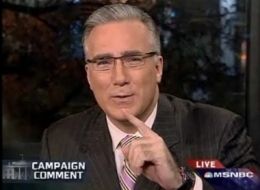
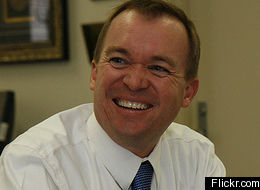
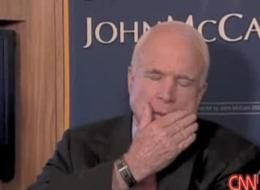

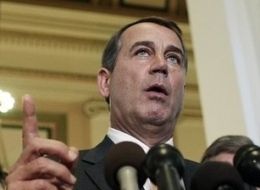


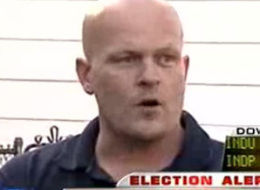
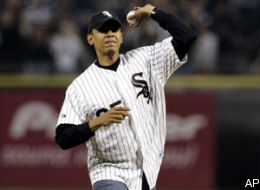


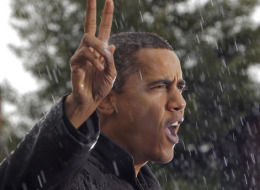
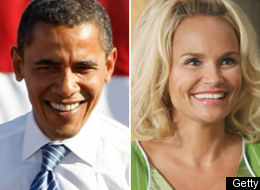



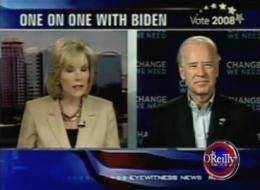

0 Comments:
Post a Comment
Subscribe to Post Comments [Atom]
<< Home